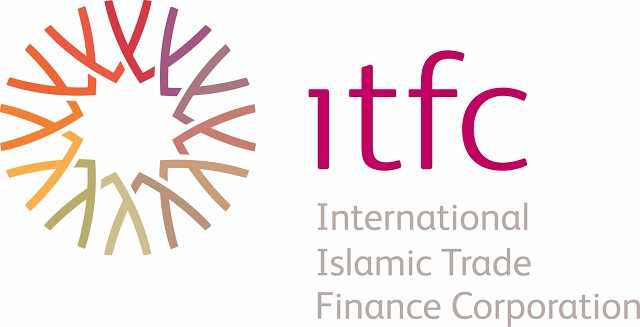MILAN — The Sustainable Coffee Platform of Indonesia (SCOPI), in collaboration with The International Islamic Trade Finance Corporation (ITFC) (www.ITFC-idb.org), has held a Master Trainer (MT) National Meeting. This hybrid activity is the completion of Training of Trainers events held on 4-5 September 2022. The extension officer for sustainable coffee or called the Master Trainer (MT) is the main program of SCOPI since 2015 to disseminate the National Curriculum for Sustainable Coffee Practices.
The MT National Meeting in 2022 is the implementation of the SCOPI-ITFC cooperation program that is expected to facilitate the transfer of knowledge between SCOPI MTs and with stakeholders regarding the latest opportunities and challenges in the coffee sector. Furthermore, this activity is also intended as a preparation for future MT competency upgrade programs.
The MT National Meeting was opened with remarks from Mr. Richard Atmadja, Chairman of the SCOPI Executive Board. He said that the need for a competent MT is one of the answers to increasing productivity for the Arabica coffee sector. Thus, increasing farmers’ income in the upstream sector and increasing opportunities for developing Arabica coffee exports with a higher value can be achieved. Through a long-term program with ITFC, SCOPI seeks to raise highly competent extension workers through the Master Trainer Upgrade Program.
While the Governor of Aceh – Achmad Marzuki, in his speech, represented by Ir. Iskandar Syukri as Expert Staff of the Aceh Governor for Specialty of Aceh, Human Resources and Cooperation Relations, said “Tanah Gayo coffee had received the spotlight in both national and international markets. Gayo Arabica coffee production reaches 4% of all premium Arabica coffee production throughout Indonesia. Gayo Arabica coffee is the result of natural resource management by farmers belonging to the people. For this reason, special attention is needed, supported by the multi-stakeholder collaboration to promote sustainable coffee practices in Aceh.”
“Aceh Tengah is one of the centers of the world’s best Arabica coffee processing industry, with 70% of production exported to international markets. However, unpredictable weather conditions are thought to cause a decline in coffee production in Central Aceh. Through the MT National Meeting, it is hoped that there will be an increase in the competence of the extension officers so that coffee farmers in Central Aceh and at the national level can apply GAP and GHP to manage coffee plants in a better and more sustainable way.” – Drs. Shabela Abubakar, in his speech represented by Mr. Harun Manzola as the Assistant for Economics and Development of the Aceh Tengah.
In line with the others, M. Nazeem Noordali as COO of ITFC commented: “ITFC focuses on making trade work for everyone in Indonesia by collaborating with leading local entities such as SCOPI to build capacity&facilitate knowledge transfer. We look forward to continuing its successful collaboration program with SCOPI in order to foster sustainable trade by increasing the quantity and quality of Indonesian coffee production.”
In the forum discussion, the MTs explained how the condition of the coffee sector in each MT work area and the opportunities that could be utilized in the future. The discussion continued with presentations by Mr. Bagus Prassetya as Program Manager of SCOPI and Mr. Arief Wicaksono as LSPP of the Ministry of Agriculture regarding the plan for the MT capacity-building program through national certification in the field of sustainable coffee. To be more focused, the activity continued with the discussion of the follow-up plan of the competency improvement program by each MT in its working area.
The last session of the discussion was filled with an explanation from Mr. Nuzul Qudri from World Coffee Research (WCR) regarding integrated efforts in adaptation and mitigation efforts to climate change that threatens the sustainability of coffee cultivation around the world.
The MT National Meeting activity was closed with a field visit to BPP Bebesen as a demo plot location for the SCOPI-ITFC cooperation program.
The implementation of the MT National Meeting cannot be separated from the support of the Aceh Provincial Government, Central Aceh District Government, Karo District Government, Global Coffee Platform, and PT. Pupuk Iskandar Muda as a subsidiary of Pupuk Indonesia Holding Company through the Ministry of BUMN program, namely PMO Kopi Nusantara. The establishment of PMO Kopi Nusantara is a form of commitment and concern for the Ministry of SOEs to improve the coffee industry in Indonesia through the synergy of stakeholders for developing a good coffee business supply chain ecosystem in Indonesia.
About the International Trade Finance Corporation (ITFC)
The International Islamic Trade Finance Corporation (ITFC) is a member of the Islamic Development Bank (IsDB) Group. It was established with the primary objective of advancing trade among OIC member countries, which would ultimately contribute to the overarching goal of improving the socio-economic conditions of the people across the world. Commencing operations in January 2008, ITFC has provided US$61.41 billion of financing to OIC member countries, making it the leading provider of trade solutions for these member countries’ needs. With a mission to become a catalyst for trade development for OIC member countries and beyond, the Corporation helps entities in member countries gain better access to trade finance and provides them with the necessary trade-related capacity-building tools, which would enable them to successfully compete in the global market.
About the Sustainable Coffee Platform of Indonesia (SCOPI)
The Sustainable Coffee Platform of Indonesia (SCOPI) is a membership-based platform focused on the sustainable development of the Indonesian coffee sector.
Established in 2015, it focuses on supporting and driving sustainability initiatives at the farm level, developing and transferring technical expertise to farmers, and advising on policy related to coffee production and sustainability.















